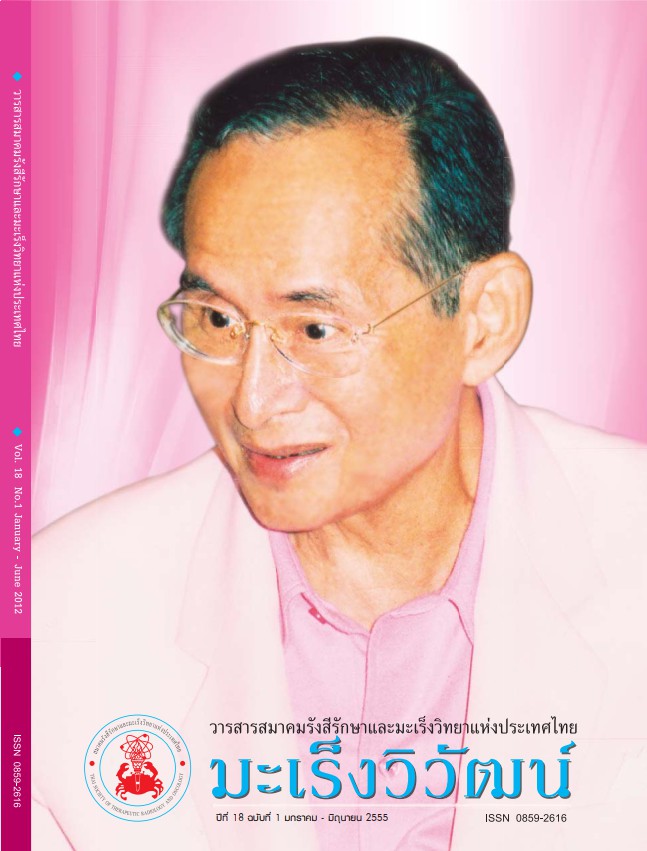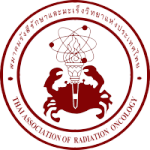A Comparative Study of Sensorineural Hearing Loss in the Treatment of Nasopharyngeal Carcinoma: Conventional Radiation Vs IMRT Technique
Abstract
Purpose: This prospective study compares the incidence and severity of sensorineural hearing loss (SNHL) in the nasopharyngeal carcinoma patients who received treatment by conventional two-dimensional (2D) radiation to IMRT technique. Methods and materials: Between November 2009 and August 2010, 18 nasopharyngeal carcinoma patients were treated with chemoradiation (similar to the Intergroup 0099 trial) and randomly assigned to receive radiotherapy by conventional radiation (n=10) and IMRT technique (n=8). Pure-tone audiometries were performed before treatment and on the day that completed radiation to evaluate hearing threshold at low speech (frequencies pure tone average; conversation in normal activities) and high speech frequency (4 kHz). An increase in bone conduction threshold more than 15 dB from baseline was considered as signifi cant SNHL. Results: The incidences of SNHL at PTA were 10% and 12.5% (p=0.608) and at 4 kHz were 15% and 56.2% (p=0.014) for conventional radiation and IMRT group, respectively. There was no difference in the severities of SNHL between two groups at both PTA and 4 kHz (p>0.05). Conclusion: No signifi cant difference was seen in the incidence of SNHL at PTA between conventional radiation and IMRT technique. The incidence of SNHL at 4 kHz were signifi cant greater in IMRT group. The severity of SNHL was also not different between two radiation techniques.
References
Butler EB, The BS, Grant, WH, et al. Smart (simultaneous modulated accelerated radiation therapy) boost: a new accelerated fractionation schedule for the treatment of head and neck cancer with intensity modulated radiotherapy. Int J Radia Oncol Biol Phys 1999;45:21-32.
Eisbruch A, Ship JA, Martel MK, et al. Parotid gland sparing in patients undergoing bilateral head and neck irradiation; techniques and early results. Int J Radiat Oncol Biol Phys 1996;36:469-480.
Eisbruch A, Ten Haken RK, Kim HM, et al. Dose, volume, and function relationships in parotid salivary glands following conformal, and intensity-modulated irradiation of head and neck cancer. Int J Radiat Oncol Biol Phys 1999;45:577-587.
Low WK, Toh ST, Wee J, Fook-Chong SM and De Yun Wang. Sensorineural hearing loss after radiotherapy and chemoradiotherapy: A single, blinded, randomized Study. JCO 2006;24:1904-1909.
Pan CC, Eisbruch A, Lee JS, et al. Prospective study of inner ear radiation dose and hearing loss in head-and-neck cancer patients. Int J Radiat Oncol Biol Phys 2005;61:1393–1402.
Herrmann F, Dörr W, Müller R, et al. A prospective study on radiation-induced changes in hearing function. Int J Radiat Oncol Biol Phys 2006;65:1338–1344.
Schot LJ, Hilgers FJ, Keus RB, Schouwenburg PF, Dreschler WA. Late effects of radiotherapy on hearing. Eur Arch Otorhinolaryngol 1992;249(6):305–8.
Oh YT, Kim CH, Choi JH, et al. Sensory neural hearing loss after concurrent cisplatin and radiation therapy for nasopharyngeal carcinoma. Radiother Oncol 2004;72:79–82.
Raaijmakers E, Engelen AM. Is sensorineural hearing loss a possible side effect of nasopharyngeal and parotid irradiation? A systematic review of the literature. Radiother Oncol 2002;65:1–7.
Zuur CL, Simis YJ, Lansdaal PE, et al. Risk factors of ototoxicity after cisplatin-based chemo-irradiation in patients with locally advanced head-and-neck cancer: A multivariate analysis. Int J Radiat Oncol Biol Phys 2007;68:1320–1325.
Zurr CL, Simis YJ, Coen RR, et al. Hearing loss in IMRT for head-and-neck tumors. Int J Radiation Oncol Biol Phys 2009;74:490–496.
Honore HB, Bentzen SM, Möller K, et al. Sensori-neural hearing loss after radiotherapy for nasopharyngeal carcinoma: Individualized risk estimation. Radiother Oncol 2002;65:9–16.
Kwong DLW, Wei W, Sham J, et al. Sensorineural hearing loss in patients treated for nasopharyngeal carcinoma: A prospective study of the effect of radiation and cisplatin treatment. Int J Radiat Oncol Biol Phys 1996;36:281–289.
Chan SH, Ng WT, Kam KL, Lee MC, Choi CW, Yau TK, et al. Sensorineural hearing loss after treatment of nasopharyngeal carcinoma: A longitudinal analysis. Int J Radiat Oncol Biol Phys 2009;73:1335–1342.
Wang LF, Kuo WR, Ho KY, et al. A long-term study on hearing status in patients with nasopharyngeal carcinoma after radiotherapy. Otol & Neurotol 2004;25:168–173.
Low WK, Burgess R, Fong KW, Wang DY. Effect of radiotherapy on retro-cochlear auditory pathways. Laryngoscope 2005;115:1823-1826.
Herrmann F, Dörr W, Müller R, et al. A prospective study on radiation-induced changes in hearing function. Int J Radiat Oncol Biol Phys 2006;65:1338–1344.
Ho WK, Wei WI, Kwong DL, et al. Long-term sensorineural hearing defi cit following radiotherapy in patients suffering from nasopharyngeal carcinoma: A prospective study. Head Neck1999;21:547-53.
Varghese G, Sahota JS, Hazarika P, et al. Hearing anomalies following radiation therapy for head and neck cancers. Indian J Exp Biol 1996;34:878–879.
Ho WK, Wei WI, Kwong DL, et al. Long-term sensorineural hearing defi cit following radiotherapy in patients suffering from nasopharyngeal carcinoma: A prospective study. Head Neck1999;21:547-53.
Chen WC, Jackson A, Budnick AS, Pfi ster DG, Kraus DH, Hunt MA, et al. Sensorineural hearing loss in combined modality treatment of nasopharyngeal carcinoma. Cancer 2006 Feb 15;106:820-829.
Ondrey FG, Greig JR, Herscher L. Radiation dose to otologic structures during head and neck cancer radiation therapy. Laryngoscope. 2000;110:217–221.
Lee NY. A phase II multi-institutional study of IMRT ± chemotherapy for nasopharyngeal carcinoma (RTOG 0225): Preliminary results. Int J Radiat Oncol Biol Phys 2006;64:57–62.
Downloads
Published
How to Cite
Issue
Section
License
บทความที่ได้รับการตีพิมพ์เป็นลิขสิทธิ์ของวารสารมะเร็งวิวัฒน์ ข้อความที่ปรากฏในบทความแต่ละเรื่องในวารสารวิชาการเล่มนี้เป็นความคิดเห็นส่วนตัวของผู้เขียนแต่ละท่านไม่เกี่ยวข้องกับ และบุคคลากรท่านอื่น ๆ ใน สมาคมฯ แต่อย่างใด ความรับผิดชอบองค์ประกอบทั้งหมดของบทความแต่ละเรื่องเป็นของผู้เขียนแต่ละท่าน หากมีความผิดพลาดใดๆ ผู้เขียนแต่ละท่านจะรับผิดชอบบทความของตนเองแต่ผู้เดียว




